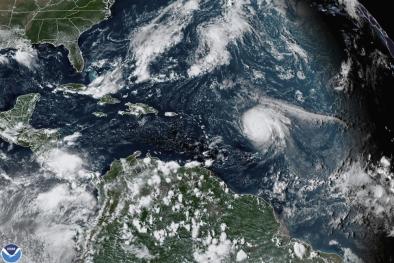Marine heatwaves exacerbate climate change impacts for fisheries in the northeast Pacific
Study key findings & significance
- The study looks at marine heatwaves recorded between 1981 and 2017 and finds that the frequency, duration, intensity, and cumulative intensity of large marine heatwaves increased during the observational period.
- The 300 largest events lasted on average 40 days, covered an average of 1.5 million km2 and had a peak temperature of 5 °C.
- For the seven largest and most recent blobs, the researchers calculated how likely each would have been with or without current global warming.
- Their analysis, which used conservative estimates of risk attributions, found impactful marine heatwaves are now over 20 times more likely because of human induced climate change. Several recent marine heat waves had a human contribution of 100%, which means they could not have occurred without anthropogenic global warming.
- This includes the infamous "Blob" that lingered off the coast of the Pacific Northwest from 2013 to 2016 as well as the intense Southwest Atlantic heat wave in 2017.
Author quotes
For several of these heat waves we got a human contribution of 100%, meaning that they could not have occurred without anthropogenic global warming.
Charlotte Laufkötter, lead-author and postdoctoral scientist at the University of Bern in Switzerland
Abstract
Marine heatwaves (MHWs) have occurred in all ocean basins with severe negative impacts on coastal and ocean ecosystems. The northeast Pacific 2013–2015 MHW in particular received major societal concerns. Yet, our knowledge about how MHWs impact fish stocks is limited. Here, we combine outputs from a large ensemble simulation of an Earth system model with a fish impact model to simulate responses of major northeast Pacific fish stocks to MHWs. We show that MHWs cause biomass decrease and shifts in biogeography of fish stocks that are at least four times faster and bigger in magnitude than the effects of decadal-scale mean changes throughout the 21st century. With MHWs, we project a doubling of impact levels by 2050 amongst the most important fisheries species over previous assessments that focus only on long-term climate change. Our results underscore the additional challenges from MHWs for fisheries and their management under climate change.
Related Content




